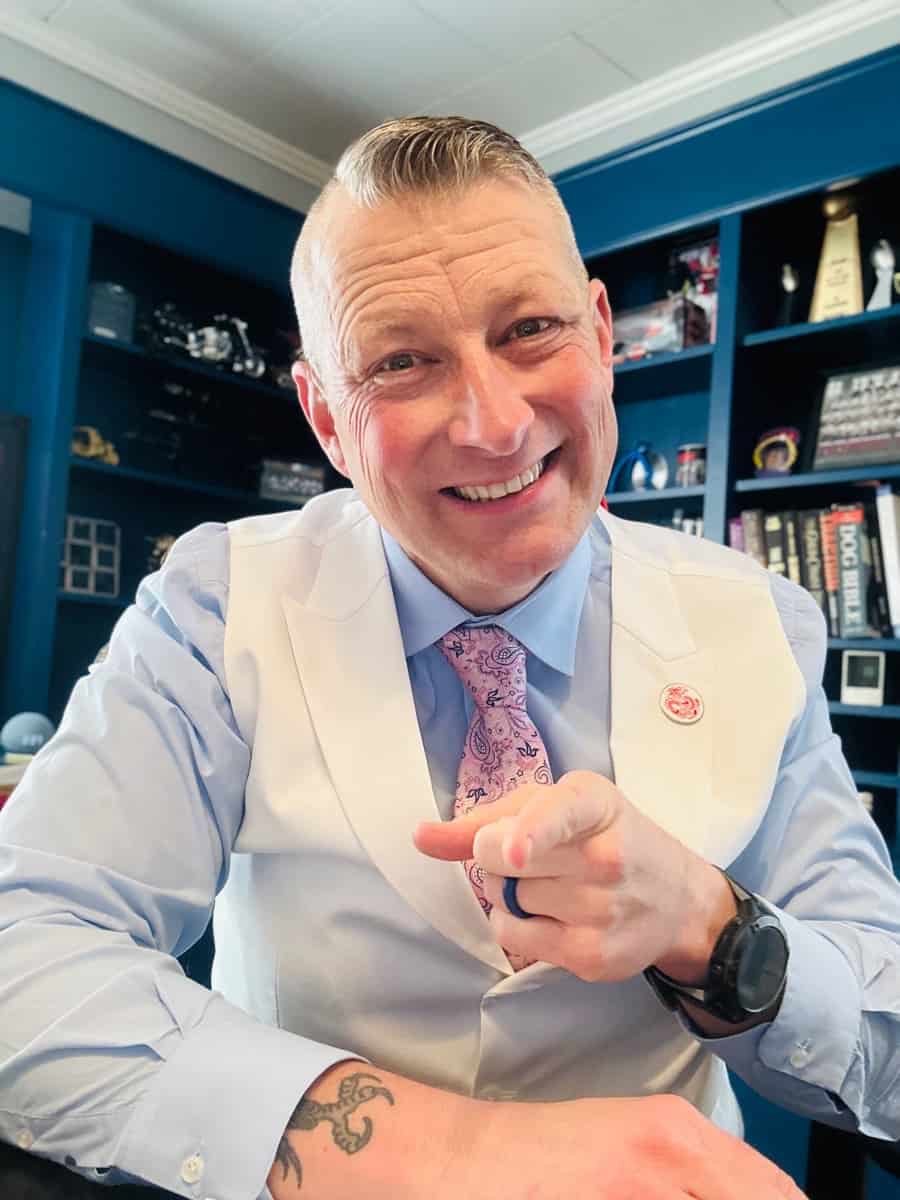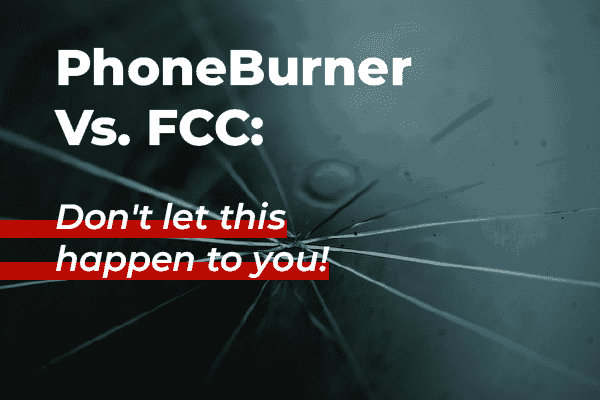As you’ve probably heard by now, for the first time ever, a dialing platform (PhoneBurner) was recently singled out by an FCC Public Notice. Ouch! But that’s not all. Last week’s crackdown on the Florida-based real estate brokerage firm MV Realty marked yet another premiere: in a declared effort to stop the allegedly illegal traffic, the FCC also sent a cease-and-desist letter to Twilio, asking the company to no longer carry the calls.
This detail is important because, according to FCC’s own press release, Twilio is the largest voice service provider yet to receive a cease-and-desist letter from the FCC – signaling that telecom carriers will remain under scrutiny and subject to enforcement regardless of their size.
Let’s dive in a little deeper!
Collateral Damage
PhoneBurner and FCCOn Jan. 24, the FCC issued a robocall enforcement notice to all U.S.-based voice service providers urging them to suspend the traffic originating from Phone Burner. The Public Notice cited substantial amounts of apparently unlawful telephone solicitation calls to phone numbers on the National Do Not Call Registry from PhoneBurner Inc. and (their client) MV Realty PBC, LLC.
The investigation was initiated by the Traceback Consortium (a group that accepts and researches spam complaints). In total, the investigation discovered more than 11 million calls made to DNC-registered numbers by PhoneBurner and MV Reality.
All right, but placing calls on the DNC list is not an offense in itself unless the calls were made without consent. However, the FCC’s own investigation points out that although people were explicitly asking not to be called again, MV Reality failed to remove these entries from the calling list. Yikes!
Mismanagement or ill intent, only time will tell. However, the FCC decided to act by sending the aforementioned cease-and-desist letters to all the voice providers that were carrying PhoneBurner’s traffic.
As a result, all the operations of the popular dialing platform were halted for almost three days, affecting the operations of ALL their other law-abiding customers.
Call center managers always knew that you could not be too careful when chasing outbound performance. Although metrics matter, deviating even one inch from the ever-changing state and federal regulations can have severe consequences.
What’s really scary, though, is that all the other lawful businesses that were using PhoneBurner as their dialing platform had to suffer. These call centers got caught in the crossfire between the FCC and PhoneBurner and saw their campaigns shut down for almost three days. Not cool.
The moral of the story
Unforeseen events outside of your control always have and always will happen. However, as a rule of thumb, compliance is not a thing to be toyed with in today’s outbound environment. Too many business decisions favor performance at the expense of compliance, ending up in toxic business partnerships.
At NobelBiz, we’ve been marching on the trail of compliance for a while now, steadily building one of the market’s most robust CCaaS solutions (advanced dialing platform included). The art of the craft is to find the perfect balance between performance and compliance, never sacrificing one for the other. Here are just a few of the elements that set us apart from the competition on the compliance front.
The Swiss army knife of outbound compliance
Considering the legal complications brought about by overlapping the federal TCPA, and state legislation, remaining compliant has become more and more difficult in the last couple of years.
If we add the growing threat of lead fraud into the mix, we have a perfect recipe for disaster, where contact centers can’t even assess the level of risk they’re exposing themselves to.
The new OMNI+ Powered by Safe Select was designed to safeguard the interests of outbound contact centers nationwide, offering active protection against present and future regulation changes.
✔️ Adhere to new compliance rules very quickly
✔️ Compliance with state non-ATDS Rules
✔️ State-specific custom call windows
✔️ Built-in suppression on DNC lists
✔️ Opt-out capabilities
✔️ Compliance in an omnichannel environment
✔️ Can work anywhere in the world
✔️ FDCPA compliance (number of times & mode of communication)
✔️ Lead fraud protection
✔️ PCI DSS Level 1 compliant payment capabilities
✔️ CRM & downloaded list integration
✔️ Cloud-based technology on Amazon Web Services
We Own Our Voice Carrier Network
NobelBiz is not your usual telecom provider but one that was designed with the sole purpose of serving enterprises and contact centers all over the world. Therefore, you will find that every little technical detail is optimized for the contact center activity: usability, compliance, pricing, etc. With us, you get one of the most versatile selections of smart tools designed to increase contact rates and productivity, help mitigate call labeling and blocking, and provide all-around compliance.
Unlike many of our competitors that act as resellers, we are among the few CCaaS providers that can offer direct telecom services.
Managing our own voice carrier network grants complete control over our compliance and safety systems. Our compliance policy is synchronized and controlled across the entire system, creating one of the safest environments possible.
STIR/SHAKEN: Fully Operational with NobelBiz
NobelBiz supports the initiative to comply with the TRACED act, by offering full STIR/SHAKEN compliance with our telecom network and CCaaS solutions, the NobelBiz Voice Carrier Network.
Depending on the level of legitimacy, the system divides the numbers into three types:
Full Attestation (Class A): when a SHAKEN STIR carrier knows the individual or the entity making a phone call, and they know the phone number or know the phone number belongs to the individual or entity, and that they are therefore authorized to use the number.
Partial Attestation (Class B): The carrier doesn’t necessarily have all the information. So, they might know the caller individual or entity and trust them, but don’t recognize the number and cannot attest that they are authorized to use that number for their calls.
Gateway Attestation (Class C): Basically, this is just a transiting call, an international number that did not originate on a known network. The carrier doesn’t know the customer. They can still say the call passed through the network. The service provider can see the location of the call they received, but they have no authorization for the source, nor can they verify if it is authorized to use the number.
Lead Fraud Protection & Consent Ambiguity
As we’ve seen in the first part of the article, consent ambiguity was the root cause of the FCC’s cease-and-desist letters. Placing calls on the DNC list is not an offense in itself unless the calls were made without consent. The FCC documents didn’t reveal what percentage of the allegedly illegal calls were made to persons who withdrew their consent.
Regardless, outbound can easily cross the TCPA red line without even knowing it, especially when dealing with outbound lists that might not be 100% consent-proof. In today’s world, there is a lot of consent fraud going on: consent forms can be up to 45% fraudulent.
By using OMNI+ powered by Safe Select (with the human selection tool), contact centers can remain compliant even if the list is not 100% consent-proof.

Michael McGuire is a contact center industry expert with almost two decades of experience in the space. His experience includes roles as Director of Contact Center Digital Transformation at NobelBiz, and as Director of Operations at FLS Connect, managing multiple call centers. As President of Anomaly Squared and Targeted Metrics, Michael successfully transitioned companies into remote operations and significantly boosted revenues. With a strong background in customer service, leadership, strategic planning, and operations management, Michael excels in driving growth and innovation in the call center space.
Mike is also a proud Board Member for R.E.A.C.H Trade Group, promoting consumer protection and satisfaction and Co-host of the Off Skripted Podcast – a show about Life, Call Centers and everything in between.







